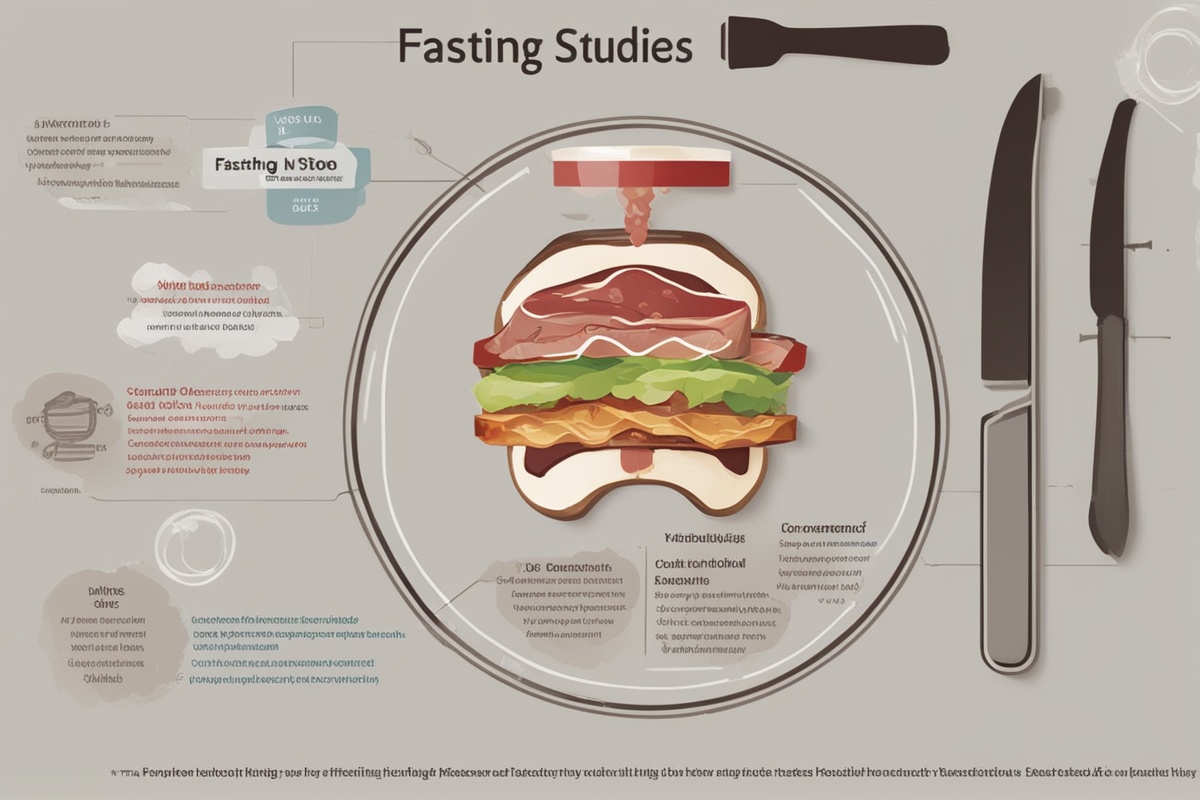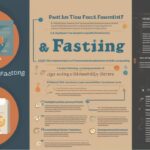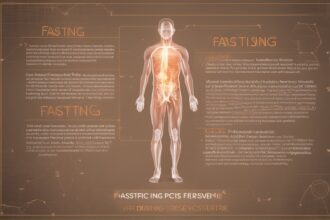Hey there, fasting enthusiasts! If you’ve ever wondered about the science behind skipping meals or limiting your eating window, you’re in for a treat. Today, we’re diving deep into fasting science—the research, the benefits, and how you can apply these findings to your lifestyle. Whether you’re a seasoned faster or just curious about intermittent fasting, this post will break down complex studies into digestible insights while offering actionable advice. Let’s explore how fasting impacts your body and mind, backed by cutting-edge research in the field of nutritional science.
What Is Fasting Science, and Why Should You Care?
At its core, fasting science is the study of how abstaining from food for specific periods affects the human body. This isn’t just about weight loss (though that’s often a perk); it’s about understanding cellular processes, metabolic health, and even longevity. Researchers have been fascinated by fasting for decades, exploring everything from intermittent fasting (IF) to prolonged fasts. The growing body of evidence suggests that fasting can trigger unique physiological responses, like autophagy—where cells clean out damaged components—and improved insulin sensitivity. Why should you care? Because understanding fasting research can help you make informed decisions about your health, whether you’re aiming to boost energy or manage chronic conditions.
Key Findings from Recent Fasting Studies
Let’s get into the nitty-gritty of recent discoveries in fasting science. Studies over the past decade have shown that fasting isn’t just a fad—it’s a powerful tool for health optimization. For instance, research published in journals like Cell Metabolism highlights how intermittent fasting can reduce inflammation markers in the body, potentially lowering the risk of diseases like diabetes and heart disease. Another fascinating study from 2021 found that time-restricted eating (limiting meals to an 8-hour window) improved metabolic flexibility, meaning your body gets better at switching between burning carbs and fats for fuel. These fasting health studies aren’t just lab experiments—they’re changing how we think about nutrition and wellness.
- A 2020 study showed that intermittent fasting could improve gut microbiome diversity, supporting digestion and immunity.
- Research from the University of Illinois found that fasting for 24 hours periodically reduced blood pressure in participants.
- Animal studies suggest fasting may enhance brain health by promoting the growth of new neurons.
- Prolonged fasting (under medical supervision) has been linked to reduced markers of oxidative stress.
How Fasting Impacts Cellular Health and Longevity
One of the most exciting areas of fasting science is its impact on cellular health. When you fast, your body enters a state of mild stress, which sounds bad but is actually beneficial. This stress triggers autophagy, a process where cells recycle damaged parts, essentially hitting a “reset” button. Studies, including those by Nobel Prize winner Yoshinori Ohsumi, have linked autophagy to longevity and reduced risks of age-related diseases. Fasting research also shows that it can lower levels of IGF-1, a growth factor tied to aging and cancer risk when elevated. While we’re not promising you’ll live to 120, these findings suggest that fasting could help you age more gracefully.
Fasting and Mental Clarity: What the Research Says
Ever notice how skipping breakfast sometimes makes you feel sharper? There’s science behind that! Fasting studies have explored how ketosis—a state where your body burns fat for fuel during extended fasts—can enhance cognitive function. A 2019 study in Nature found that fasting boosts the production of brain-derived neurotrophic factor (BDNF), a protein that supports brain health and may protect against neurodegenerative diseases like Alzheimer’s. Many fasters report improved focus and mental clarity, and while more human trials are needed, the early data on fasting and brain health is incredibly promising. So, next time you’re in a fasting window, pay attention to how your mind feels—it might surprise you!
Practical Tips to Apply Fasting Science to Your Life
Now that we’ve geeked out over fasting research, let’s talk about how to put this knowledge into action. Fasting isn’t a one-size-fits-all approach, and the key is to start slow and listen to your body. Whether you’re exploring intermittent fasting science or considering a longer fast, these tips—grounded in scientific insights—can help you succeed. Remember, always consult a healthcare professional if you have underlying conditions or are new to fasting protocols.
- Start with a 12:12 schedule: Eat within a 12-hour window and fast for the other 12 to ease your body into the rhythm.
- Stay hydrated: Drink plenty of water during fasting periods to support detoxification processes.
- Focus on nutrient-dense meals: Break your fast with whole foods like vegetables, lean proteins, and healthy fats to maximize benefits.
- Avoid overeating: Studies show that overcompensating after a fast can negate metabolic gains, so keep portions reasonable.
- Track your progress: Use a journal or app to note energy levels, mood, and hunger cues to tailor your fasting approach.
Potential Risks and What Science Warns Us About
While the benefits of fasting are backed by solid research, fasting science also reminds us to proceed with caution. Not everyone responds to fasting the same way, and studies highlight potential risks, especially for certain groups. For example, fasting can lead to irritability or fatigue if you’re not properly nourished during eating windows. Research also cautions against fasting for pregnant women, individuals with eating disorders, or those with specific medical conditions like low blood sugar. A 2022 review in The Lancet emphasized the importance of personalized fasting plans to avoid nutrient deficiencies. The takeaway? Fasting is powerful, but it’s not a magic bullet—balance and moderation are key.
In wrapping up our deep dive into fasting science, it’s clear that this ancient practice is more than just a trend—it’s a well-studied approach to improving health on multiple levels. From cellular repair to mental clarity, the benefits of fasting are backed by a growing body of research that continues to evolve. By understanding the latest fasting studies and applying practical tips, you can harness these insights to enhance your well-being. Remember to start small, stay informed, and consult experts if needed. Have you tried fasting yet? Drop your experiences or questions below—I’d love to hear how the science of fasting is working for you!






